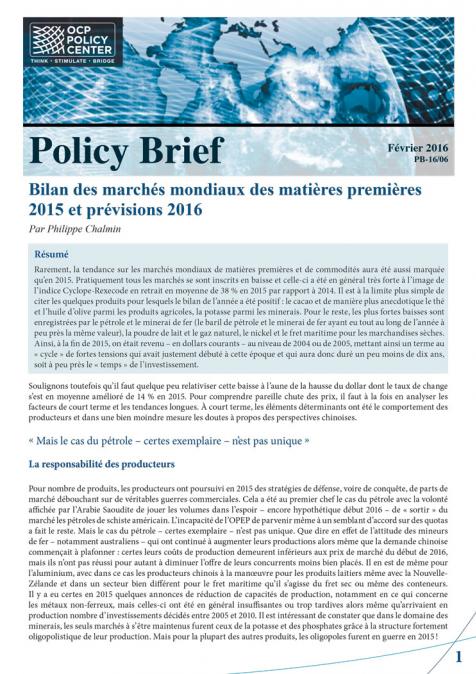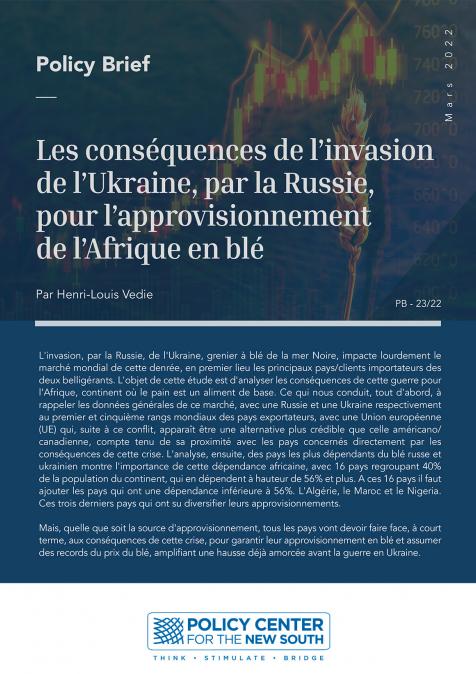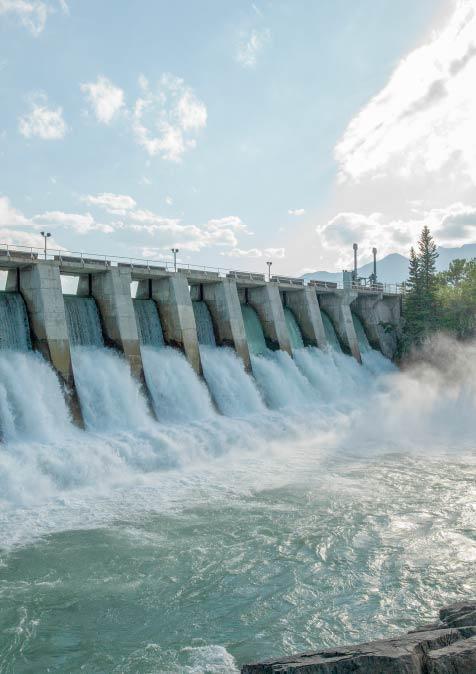Publications /
Policy Brief
Rarement, la tendance sur les marchés mondiaux de matières premières et de commodités aura été aussi marquée qu’en 2015. Pratiquement tous les marchés se sont inscrits en baisse et celle-ci a été en général très forte à l’image de l’indice Cyclope-Rexecode en retrait en moyenne de 38 % en 2015 par rapport à 2014. Il est à la limite plus simple de citer les quelques produits pour lesquels le bilan de l’année a été positif : le cacao et de manière plus anecdotique le thé et l’huile d’olive parmi les produits agricoles, la potasse parmi les minerais. Pour le reste, les plus fortes baisses sont enregistrées par le pétrole et le minerai de fer (le baril de pétrole et le minerai de fer ayant eu tout au long de l’année à peu près la même valeur), la poudre de lait et le gaz naturel, le nickel et le fret maritime pour les marchandises sèches. Ainsi, à la fin de 2015, on était revenu – en dollars courants – au niveau de 2004 ou de 2005, mettant ainsi un terme au « cycle » de fortes tensions qui avait justement débuté à cette époque et qui aura donc duré un peu moins de dix ans, soit à peu près le « temps » de l’investissement.










